
Advice on Reading Poetry for People Who Are Intimidated by Poetry
This content contains affiliate links. When you buy through these links, we may earn an affiliate commission.
April is National Poetry Month, so it’s the perfect time to be reading (and reciting) more poetry. Poetry helps us make sense of the world around us in a personal and deep way, so it’s a truly vital art form. If you’ve suffered some poetry-related trauma—perhaps a teacher graded you poorly for your interpretation of a poem, or maybe you’ve read something so obtuse it left you cold—you can come back around to loving poetry. If you’ve never cared much for poetry in the first place, there’s no more efficient way to get amazing words into your brain, so give it a try this month. Here are some frameworks for thinking about poetry, as well as beautiful poems to accompany them.
 If you feel estranged from the world of poetry, remember that you probably loved it at some point. Whether it was Sandra Boynton’s Barnyard Dance, Margaret Wise Brown’s Goodnight Moon, or the nursery rhymes and folk tales loved ones told us from birth, it’s quite fair to say that all of us are raised in poetry in some way.
You might rediscover their love for poetry by going back to basics. Remembering the pleasures of rhythm and rhyme. Reread some children’s books. Come up with some goofy rhymes yourself. Remember what it was like to be a little less self conscious.
An easy poem to love is Emily Dickinson’s “‘Hope’ is the thing with feathers—” (314).
If you feel estranged from the world of poetry, remember that you probably loved it at some point. Whether it was Sandra Boynton’s Barnyard Dance, Margaret Wise Brown’s Goodnight Moon, or the nursery rhymes and folk tales loved ones told us from birth, it’s quite fair to say that all of us are raised in poetry in some way.
You might rediscover their love for poetry by going back to basics. Remembering the pleasures of rhythm and rhyme. Reread some children’s books. Come up with some goofy rhymes yourself. Remember what it was like to be a little less self conscious.
An easy poem to love is Emily Dickinson’s “‘Hope’ is the thing with feathers—” (314).
 If you’ve felt locked out of poetry, push your way back in. It can feel like poetry is only for people smart enough to know how to read it, but it’s unlikely poets would say that about their own work. Poetry, like any other art form, is a conversation. The poet broadcasts their words, and you meet those words out in the world, bringing with you all your experiences and knowledge. Those experiences and knowledge are exactly what you need to benefit from the reading of poetry. You don’t always have to worry about allusions or references that pass you by.
A poem for everyone is Jacqueline Woodson’s “Firefly.”
If you’ve felt locked out of poetry, push your way back in. It can feel like poetry is only for people smart enough to know how to read it, but it’s unlikely poets would say that about their own work. Poetry, like any other art form, is a conversation. The poet broadcasts their words, and you meet those words out in the world, bringing with you all your experiences and knowledge. Those experiences and knowledge are exactly what you need to benefit from the reading of poetry. You don’t always have to worry about allusions or references that pass you by.
A poem for everyone is Jacqueline Woodson’s “Firefly.”
 While it’s true that a poem may be paying homage to something in particular—another writer, perhaps, or a coded way of relating a more straightforward notion—that doesn’t mean that you’re trying to solve for X. You might even crack open exactly what the poet intended you to. But you will also no doubt make your own leaps, and find meaning in your own unique way. That’s the end goal. To make meaning for yourself from the poem. If you’re interpreting a poem for a class, you need to provide evidence for the meaning you support, and that’s an important skill to build. If you’re reading poetry for fun and edification, you can be a little more freeform about it, letting the lines strike you however they do, and letting the associations be nimble.
To remind you that poetry is not algebra, read Joy Harjo’s “Once the World Was Perfect.”
While it’s true that a poem may be paying homage to something in particular—another writer, perhaps, or a coded way of relating a more straightforward notion—that doesn’t mean that you’re trying to solve for X. You might even crack open exactly what the poet intended you to. But you will also no doubt make your own leaps, and find meaning in your own unique way. That’s the end goal. To make meaning for yourself from the poem. If you’re interpreting a poem for a class, you need to provide evidence for the meaning you support, and that’s an important skill to build. If you’re reading poetry for fun and edification, you can be a little more freeform about it, letting the lines strike you however they do, and letting the associations be nimble.
To remind you that poetry is not algebra, read Joy Harjo’s “Once the World Was Perfect.”
 While meeting a poem where you are is a perfectly fine strategy, it can also be useful to build up a little context. Poetry, like any art, is contextualized within the society and time that produced it. If you’re reading poetry from another time period, taking stock of major historical events and movements can be helpful. If a poem references something you’re unfamiliar with, look it up! I have the same philosophy on poetry reading as I do on crossword puzzle solving: looking things up isn’t cheating, because it’s how you learn for the next time you encounter the concept.
A great poem to enjoy on the surface, or for digging up context, is Frank O’Hara’s “Having a Coke With You.”
While meeting a poem where you are is a perfectly fine strategy, it can also be useful to build up a little context. Poetry, like any art, is contextualized within the society and time that produced it. If you’re reading poetry from another time period, taking stock of major historical events and movements can be helpful. If a poem references something you’re unfamiliar with, look it up! I have the same philosophy on poetry reading as I do on crossword puzzle solving: looking things up isn’t cheating, because it’s how you learn for the next time you encounter the concept.
A great poem to enjoy on the surface, or for digging up context, is Frank O’Hara’s “Having a Coke With You.”
 We are often caught in the trap of productivity and translate it into our hobbies. How many books can we read in a year? If we read books of poetry, which are short, those can bolster our numbers, right?
How about I give the exact opposite of that advice? Take a whole day to read a poem. Take a week. Keep it on a piece of paper in your pocket and pull it out in idle moments. Think about one line for 15 minutes—imagine how long the poet spent on it! Reread the same poem every year and see how it changes over the course of your life. Memorize a poem so that its syllables become part of you. Poems, like songs, are the perfect doses of art to enjoy thousands of times over.
A poem that can yield meaning upon meaning when taken slowly is Elizabeth Bishop’s “One Art.”
We are often caught in the trap of productivity and translate it into our hobbies. How many books can we read in a year? If we read books of poetry, which are short, those can bolster our numbers, right?
How about I give the exact opposite of that advice? Take a whole day to read a poem. Take a week. Keep it on a piece of paper in your pocket and pull it out in idle moments. Think about one line for 15 minutes—imagine how long the poet spent on it! Reread the same poem every year and see how it changes over the course of your life. Memorize a poem so that its syllables become part of you. Poems, like songs, are the perfect doses of art to enjoy thousands of times over.
A poem that can yield meaning upon meaning when taken slowly is Elizabeth Bishop’s “One Art.”
 Even if a poem doesn’t rhyme, and of course most contemporary poetry doesn’t, the poet was likely thinking a lot about the sounds of the words that comprise the poem. If you’re not reading it aloud, you’re missing part of the poem’s impact. Pay attention to the way the words feel in your mouth. Listen for words that flow smoothly or that bite back at you. This can always be a way to glean some meaning from the poem.
A poem to read aloud is Harryette Mullen’s “Any Lit.”
Even if a poem doesn’t rhyme, and of course most contemporary poetry doesn’t, the poet was likely thinking a lot about the sounds of the words that comprise the poem. If you’re not reading it aloud, you’re missing part of the poem’s impact. Pay attention to the way the words feel in your mouth. Listen for words that flow smoothly or that bite back at you. This can always be a way to glean some meaning from the poem.
A poem to read aloud is Harryette Mullen’s “Any Lit.”
 Like any genre of writing, every poet is not for every person. It can take some persistence to find poets who resonate with you, but that’s time well spent. Our formal education in literature so rarely involves reading writers who are still among us, but there’s more poetry out there than ever. It’s great if you can get down with the oldies; I love me some John Donne and Walt Whitman. But you’ll always have a leg up on that context piece of the puzzle if you’re reading poets translating the current moment into distilled words.
A poem I hope speaks to you as it does to me is Ada Limón’s “Instructions on Not Giving Up.”
Like any genre of writing, every poet is not for every person. It can take some persistence to find poets who resonate with you, but that’s time well spent. Our formal education in literature so rarely involves reading writers who are still among us, but there’s more poetry out there than ever. It’s great if you can get down with the oldies; I love me some John Donne and Walt Whitman. But you’ll always have a leg up on that context piece of the puzzle if you’re reading poets translating the current moment into distilled words.
A poem I hope speaks to you as it does to me is Ada Limón’s “Instructions on Not Giving Up.”
Poetry Can Be Easy to Love
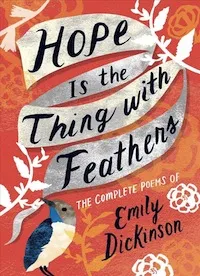 If you feel estranged from the world of poetry, remember that you probably loved it at some point. Whether it was Sandra Boynton’s Barnyard Dance, Margaret Wise Brown’s Goodnight Moon, or the nursery rhymes and folk tales loved ones told us from birth, it’s quite fair to say that all of us are raised in poetry in some way.
You might rediscover their love for poetry by going back to basics. Remembering the pleasures of rhythm and rhyme. Reread some children’s books. Come up with some goofy rhymes yourself. Remember what it was like to be a little less self conscious.
An easy poem to love is Emily Dickinson’s “‘Hope’ is the thing with feathers—” (314).
If you feel estranged from the world of poetry, remember that you probably loved it at some point. Whether it was Sandra Boynton’s Barnyard Dance, Margaret Wise Brown’s Goodnight Moon, or the nursery rhymes and folk tales loved ones told us from birth, it’s quite fair to say that all of us are raised in poetry in some way.
You might rediscover their love for poetry by going back to basics. Remembering the pleasures of rhythm and rhyme. Reread some children’s books. Come up with some goofy rhymes yourself. Remember what it was like to be a little less self conscious.
An easy poem to love is Emily Dickinson’s “‘Hope’ is the thing with feathers—” (314).
Poetry is for Everyone
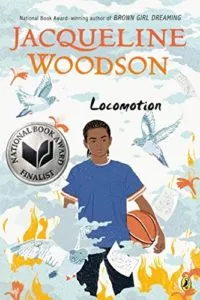 If you’ve felt locked out of poetry, push your way back in. It can feel like poetry is only for people smart enough to know how to read it, but it’s unlikely poets would say that about their own work. Poetry, like any other art form, is a conversation. The poet broadcasts their words, and you meet those words out in the world, bringing with you all your experiences and knowledge. Those experiences and knowledge are exactly what you need to benefit from the reading of poetry. You don’t always have to worry about allusions or references that pass you by.
A poem for everyone is Jacqueline Woodson’s “Firefly.”
If you’ve felt locked out of poetry, push your way back in. It can feel like poetry is only for people smart enough to know how to read it, but it’s unlikely poets would say that about their own work. Poetry, like any other art form, is a conversation. The poet broadcasts their words, and you meet those words out in the world, bringing with you all your experiences and knowledge. Those experiences and knowledge are exactly what you need to benefit from the reading of poetry. You don’t always have to worry about allusions or references that pass you by.
A poem for everyone is Jacqueline Woodson’s “Firefly.”
Poetry is Not Algebra
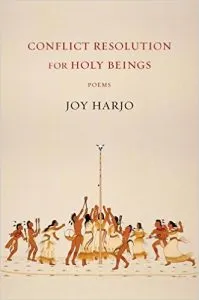 While it’s true that a poem may be paying homage to something in particular—another writer, perhaps, or a coded way of relating a more straightforward notion—that doesn’t mean that you’re trying to solve for X. You might even crack open exactly what the poet intended you to. But you will also no doubt make your own leaps, and find meaning in your own unique way. That’s the end goal. To make meaning for yourself from the poem. If you’re interpreting a poem for a class, you need to provide evidence for the meaning you support, and that’s an important skill to build. If you’re reading poetry for fun and edification, you can be a little more freeform about it, letting the lines strike you however they do, and letting the associations be nimble.
To remind you that poetry is not algebra, read Joy Harjo’s “Once the World Was Perfect.”
While it’s true that a poem may be paying homage to something in particular—another writer, perhaps, or a coded way of relating a more straightforward notion—that doesn’t mean that you’re trying to solve for X. You might even crack open exactly what the poet intended you to. But you will also no doubt make your own leaps, and find meaning in your own unique way. That’s the end goal. To make meaning for yourself from the poem. If you’re interpreting a poem for a class, you need to provide evidence for the meaning you support, and that’s an important skill to build. If you’re reading poetry for fun and edification, you can be a little more freeform about it, letting the lines strike you however they do, and letting the associations be nimble.
To remind you that poetry is not algebra, read Joy Harjo’s “Once the World Was Perfect.”
Context Helps
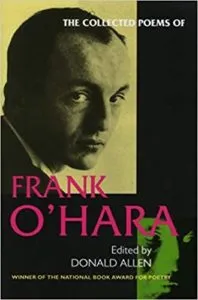 While meeting a poem where you are is a perfectly fine strategy, it can also be useful to build up a little context. Poetry, like any art, is contextualized within the society and time that produced it. If you’re reading poetry from another time period, taking stock of major historical events and movements can be helpful. If a poem references something you’re unfamiliar with, look it up! I have the same philosophy on poetry reading as I do on crossword puzzle solving: looking things up isn’t cheating, because it’s how you learn for the next time you encounter the concept.
A great poem to enjoy on the surface, or for digging up context, is Frank O’Hara’s “Having a Coke With You.”
While meeting a poem where you are is a perfectly fine strategy, it can also be useful to build up a little context. Poetry, like any art, is contextualized within the society and time that produced it. If you’re reading poetry from another time period, taking stock of major historical events and movements can be helpful. If a poem references something you’re unfamiliar with, look it up! I have the same philosophy on poetry reading as I do on crossword puzzle solving: looking things up isn’t cheating, because it’s how you learn for the next time you encounter the concept.
A great poem to enjoy on the surface, or for digging up context, is Frank O’Hara’s “Having a Coke With You.”
Take it Slow
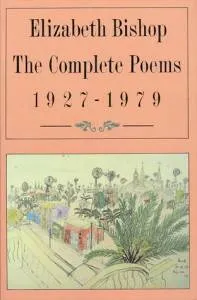 We are often caught in the trap of productivity and translate it into our hobbies. How many books can we read in a year? If we read books of poetry, which are short, those can bolster our numbers, right?
How about I give the exact opposite of that advice? Take a whole day to read a poem. Take a week. Keep it on a piece of paper in your pocket and pull it out in idle moments. Think about one line for 15 minutes—imagine how long the poet spent on it! Reread the same poem every year and see how it changes over the course of your life. Memorize a poem so that its syllables become part of you. Poems, like songs, are the perfect doses of art to enjoy thousands of times over.
A poem that can yield meaning upon meaning when taken slowly is Elizabeth Bishop’s “One Art.”
We are often caught in the trap of productivity and translate it into our hobbies. How many books can we read in a year? If we read books of poetry, which are short, those can bolster our numbers, right?
How about I give the exact opposite of that advice? Take a whole day to read a poem. Take a week. Keep it on a piece of paper in your pocket and pull it out in idle moments. Think about one line for 15 minutes—imagine how long the poet spent on it! Reread the same poem every year and see how it changes over the course of your life. Memorize a poem so that its syllables become part of you. Poems, like songs, are the perfect doses of art to enjoy thousands of times over.
A poem that can yield meaning upon meaning when taken slowly is Elizabeth Bishop’s “One Art.”
Read it Aloud
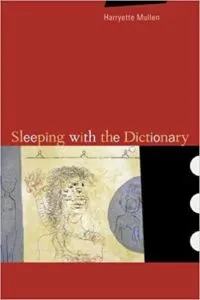 Even if a poem doesn’t rhyme, and of course most contemporary poetry doesn’t, the poet was likely thinking a lot about the sounds of the words that comprise the poem. If you’re not reading it aloud, you’re missing part of the poem’s impact. Pay attention to the way the words feel in your mouth. Listen for words that flow smoothly or that bite back at you. This can always be a way to glean some meaning from the poem.
A poem to read aloud is Harryette Mullen’s “Any Lit.”
Even if a poem doesn’t rhyme, and of course most contemporary poetry doesn’t, the poet was likely thinking a lot about the sounds of the words that comprise the poem. If you’re not reading it aloud, you’re missing part of the poem’s impact. Pay attention to the way the words feel in your mouth. Listen for words that flow smoothly or that bite back at you. This can always be a way to glean some meaning from the poem.
A poem to read aloud is Harryette Mullen’s “Any Lit.”
Find a Poet Who Speaks to You
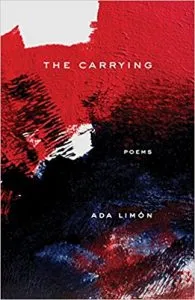 Like any genre of writing, every poet is not for every person. It can take some persistence to find poets who resonate with you, but that’s time well spent. Our formal education in literature so rarely involves reading writers who are still among us, but there’s more poetry out there than ever. It’s great if you can get down with the oldies; I love me some John Donne and Walt Whitman. But you’ll always have a leg up on that context piece of the puzzle if you’re reading poets translating the current moment into distilled words.
A poem I hope speaks to you as it does to me is Ada Limón’s “Instructions on Not Giving Up.”
Like any genre of writing, every poet is not for every person. It can take some persistence to find poets who resonate with you, but that’s time well spent. Our formal education in literature so rarely involves reading writers who are still among us, but there’s more poetry out there than ever. It’s great if you can get down with the oldies; I love me some John Donne and Walt Whitman. But you’ll always have a leg up on that context piece of the puzzle if you’re reading poets translating the current moment into distilled words.
A poem I hope speaks to you as it does to me is Ada Limón’s “Instructions on Not Giving Up.”








